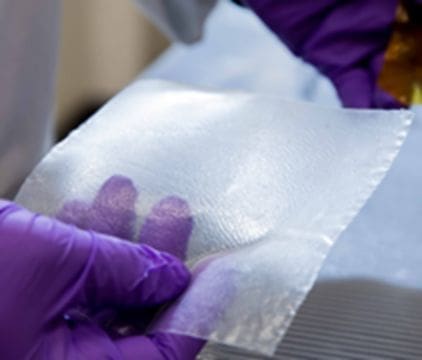A cotton-based substitute for plastic wins natural fibres award
IWTO congratulates Dr. Noureddine Abidi, Professor and Director, Fiber and Biopolymer Research Institute, at Texas Tech University, for winning the 2020 Discover Natural Fibre Innovation Award.
The Discover Natural Fibres Initiative – DNFI – announced the winner of the annual award today, 30 Ocotber.
In his winning submission, Dr Abidi created a process which transforms low-quality cotton fibre into a gel that can be turned into bioproducts, including bio-plastic films.
The process that uses a plant-based substitute is an inexpensive alternative to petroleum-based plastics. Moreover, the cotton-based bio-plastic is biodegradable in soil, yet stable in household conditions.
Products made from this bio-plastic film would have properties similar to those of plastics currently in common use – but with several environmental benefits.
Cotton-based innovation shows how natural fibres offer eco-friendly options to petroleum-based synthetics
Commerical options for the cotton-gel/bio-plastic process include shopping bags, soil covering for agriculture, bioplastic packaging, and other single-use items.
Unlike starch-bioplastics, cotton cellulose has no food value. The process could even create a new niche market for low-quality cotton fibers.
Cotton fibres are approximately 99% cellulose. Cellulose-derived bio-plastics are naturally biodegradable in landfills and composting facilities. Testing shows that when cotton cellulose bio-plastic films are buried in soil, decomposition begins in about three weeks.
This could provide a solution to the plastic accumulation in the environment that we see so much of. For more details, visit dnfi.org.
Support wool and other natural fibres! Check out our Fact Sheets or contact us.
Read next: Score Natural Fibres Fairly, says IWTO in Green Claims Consulatation

